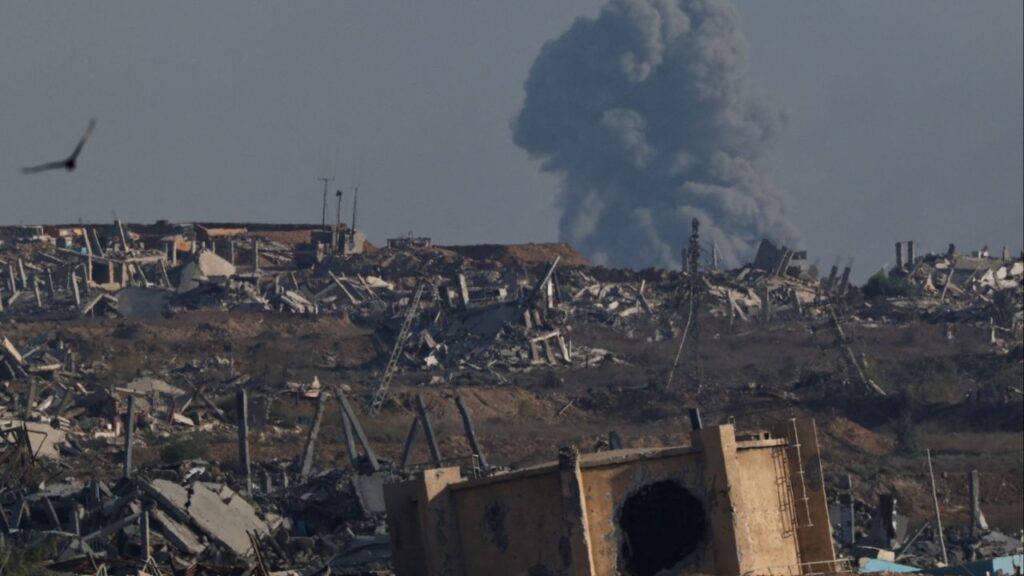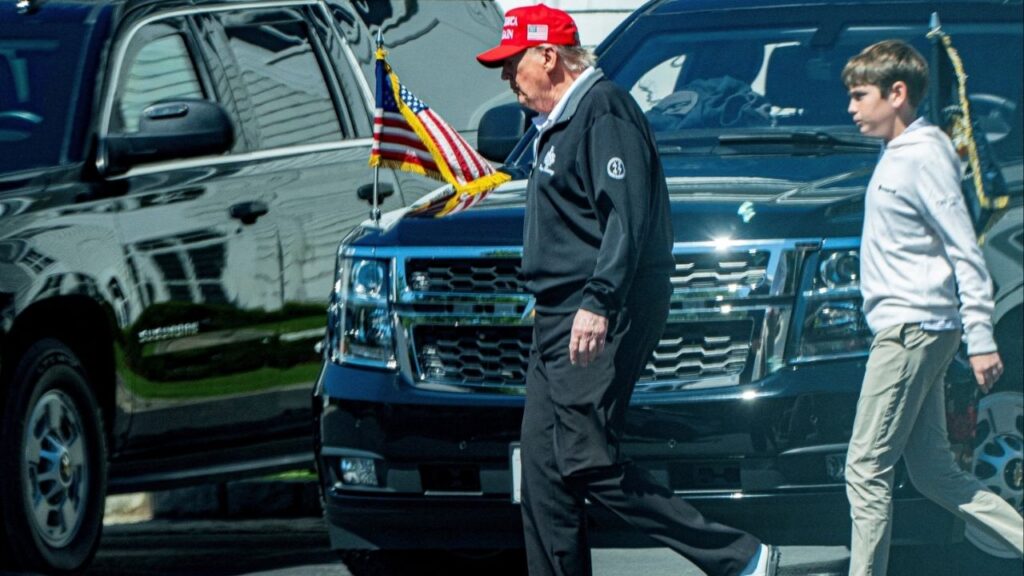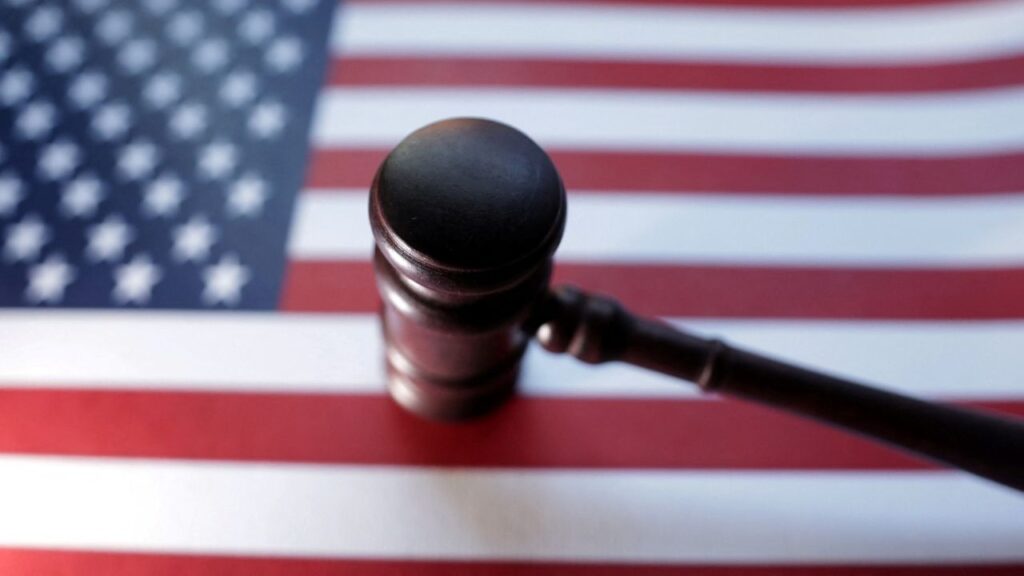Share
NEW YORK — Set aside the polls, the fundraising numbers or Donald Trump’s name recognition as metrics of his early dominance of the Republican presidential contest. He has what could prove to be the most important advantage in the race: a leg up in winning the delegates needed to clinch the GOP nomination.
While the delegate count won’t begin taking shape until voting begins next January, Trump’s edge in the race to win their votes is years in the making. Many state Republican parties made changes to their rules ahead of the 2020 election by adding more winner-take-all contests and requiring candidates to earn higher percentages of the vote to claim any delegates. Those changes all benefit a frontrunner, a position Trump has held despite his mounting legal peril, blame for his party’s lackluster performance in the 2022 elections and the turbulent years of his presidency.
As Trump makes another run for the White House, he has been focused on the looming battle for delegates, according to people with knowledge of his effort who requested anonymity to discuss strategy. He’s had regular discussion with state party chairs, many of whose leadership races he got involved in, and has hosted delegations from Republican parties in Nevada, Louisiana and Pennsylvania at his homes in Florida and New Jersey.
The moves are a sign of how Trump’s team is focused on the crucial, if less glamorous, aspects of winning the GOP nomination. That’s a notable change from his first bid for the White House in 2016, when his team of relatively novice operatives weren’t familiar with the minutia of the delegate contest and sometimes found themselves outflanked by better-prepared rivals, particularly Texas Sen. Ted Cruz.
Trump’s Yearslong Work Outmatches Other Campaigns
That doesn’t appear to be happening this time as election experts say it appears few other campaigns have been able to match Trump’s yearslong work.
“They’ve been asleep at the switch,” election lawyer Benjamin Ginsberg said.
More than 2,000 party activists, insiders and elected officials make up the pool of delegates who will cast votes at the Republican National Convention next summer to formally select a nominee. The rules governing how delegates are selected are determined by state parties, which have until October to submit their plans for next year’s elections.
Many of the proposed changes that are starting to emerge in state parties appear to benefit the former president.
Michigan’s New Plan Expected to Benefit Trump
In Michigan, where the state GOP has become increasingly loyal to Trump, the party’s leadership this year voted to change the state’s longtime process of allocating all its presidential delegates based on an open primary election. Under a new plan widely expected to benefit Trump, 16 of the state’s 55 delegates will be awarded based on the results of a Feb. 27 primary. The other 39 will be distributed four days later in closed-door caucus meetings of party activists.
Other Republican parties are looking to shift away from primary elections toward party-run caucuses, where Trump’s support among the party’s grassroots activists could put his rivals at a disadvantage.
In Idaho, one of the country’s most Republican states, a new law passed by the state legislature earlier this year eliminated the presidential primary process by moving the state elections to May as lawmakers tried to consolidate the voting calendar. The party’s state central committee decided last month to instead hold caucuses on March 2.
In Nevada, the state Republican Party is mounting a legal battle to try to hold a party-run caucus instead of a state-run primary election. The party chair, Michael McDonald, said he had spoken with Trump’s team about the process and ongoing lawsuit but had not heard from the campaign of his strongest rival, Florida Gov. Ron DeSantis.
Changes to Reduce Last-Minute Maneuvering at Convention
Other changes in the works would reduce the potential of any last-minute maneuvering at the convention.
At least two states, Louisiana and Colorado, are proposing changes this year that would bind delegates to vote for their assigned candidate during a second round of voting the national convention in the unlikely event that no candidate has a majority on the first ballot.
Trump senior advisor Chris LaCivita said the campaign has had conversations with state parties all over the country about their delegate selection plans and is keeping close tabs on what its opponents are doing—or not doing.
RELATED TOPICS:
Trump Says He Will Order Voter ID Requirement for Every Vote
7 hours ago
Greta Thunberg Joins Flotilla Heading for Gaza With Aid
7 hours ago
Chicago Mayor Says Police Will Not Aid Federal Troops or Agents
7 hours ago
Post-War Gaza Plan Sees Relocation of Population, ‘Digital Token’ for Palestinian Land: Washington Post
7 hours ago
Labor Day Quiz: Do You Know What a Knocker-Upper Is?
8 hours ago
Judge Blocks Pillar of Trump’s Mass Deportation Campaign
1 day ago
Visalia Driver Arrested for DUI After Multiple Crashes and Pedestrian Injured
1 day ago
Fresno County Garnet Fire Grows to 18,748 Acres in Sierra National Forest
7 hours ago
Categories

Fresno County Garnet Fire Grows to 18,748 Acres in Sierra National Forest

Israel Pounds Gaza City Suburbs, Netanyahu to Convene Security Cabinet

Trump Says He Will Order Voter ID Requirement for Every Vote

Greta Thunberg Joins Flotilla Heading for Gaza With Aid

Chicago Mayor Says Police Will Not Aid Federal Troops or Agents

Post-War Gaza Plan Sees Relocation of Population, ‘Digital Token’ for Palestinian Land: Washington Post










